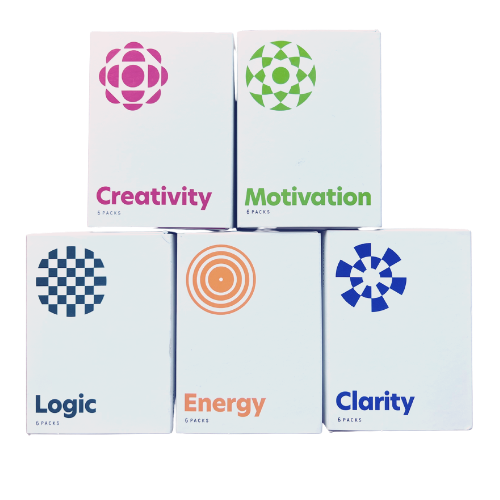We’ve written a few articles on Nootropics, and a few of our readers have noticed that some of them claim to help with symptoms of Attention-Deficit/Hyperactivity Disorder (ADHD). Many ingredients in popular Nootropics are researched to have some effect on ADHD, and so it’s natural to write in and ask us directly, “Do Nootropics help?”
This simple answer is that some Nootropic supplements have a positive effect on some of the symptoms of ADHD, though none are approved by the FDA to “treat or cure” ADHD. And that’s an important distinction to make.
Before we dig into the brass-tacks, we’ll cover some terminology on Nootropics, then we’ll move into which ingredients to look for in your favorite Nootropics for ADHD relief.
Defining a Nootropic
Anything that affects cognitive, memory, or other neurological function can be classified as a “nootropic.” The term originally referred only to prescription medications and drugs in development to become medications.
There are several classes of medication that could be called “nootropics” that are prescribed to treat ADHD.

These include what we commonly call Adderall and Ritalin. We note that at the top because what we’re going to discuss next are not FDA approved medications, but they are FDA regulated supplements that may help some people with their ADHD symptoms.
Nootropic Supplements
Many people are invested in alternative supplements to their ADHD medications. After all, most prescriptions in this field involve stimulants, some in the methamphetamine family.
Parents with children suffering from ADHD, or adults who themselves want to avoid those classifications of drug, are keen to find alternatives.

First we’ll talk about some common ingredients that might help symptoms of ADHD, and then we’ll look at some popular products that claim to help with ADHD.
Ingredients
We cross-checked some things in that lifestyle article with a database of research at the National Institutes of Health, like this article, to come up with some ingredients to look for in your favorite Nootropics.
Products
We’ve done a ton of Nootropic reviews, and frankly, not every product out there is worth the plastic bottle they come in. We picked out a couple products that we’ve reviewed in the past that also have the key ingredients you’re looking for.
Mind Lab Pro
One of the reasons we keep recommending Mind Lab Pro is that they’re designed with science behind them.
In fact, before even looking at their product, we recommend reading an article by Dr. Ramon Velazquez, wherein he breaks down the truth about Nootropics and ADHD.

Thesis
If you want a customized, your-size-fits-you approach to Nootropics, Thesis might be for you.
Here’s a link to their ingredients page, so you can check out their products from the inside out, and look at the research they put in to see if it’s right for you.

Bottom Line
In the end, we can’t be too careful with our mental health. So if you’re unsure about Nootropics, or the medications you’re currently on, consult your doctor. And if you haven’t been diagnosed with ADHD, but you exhibit some similar aspects of behavior, perhaps add some Nootropics to your routine, with a doctor’s supervision, and see if you notice improvements.
The bottom line is that we can’t be too careful. While some Nootropics can help, some are also a little suspect. So talk to your doctor, check the ingredient labels of any supplement you take, and make the choices that are right for you.

